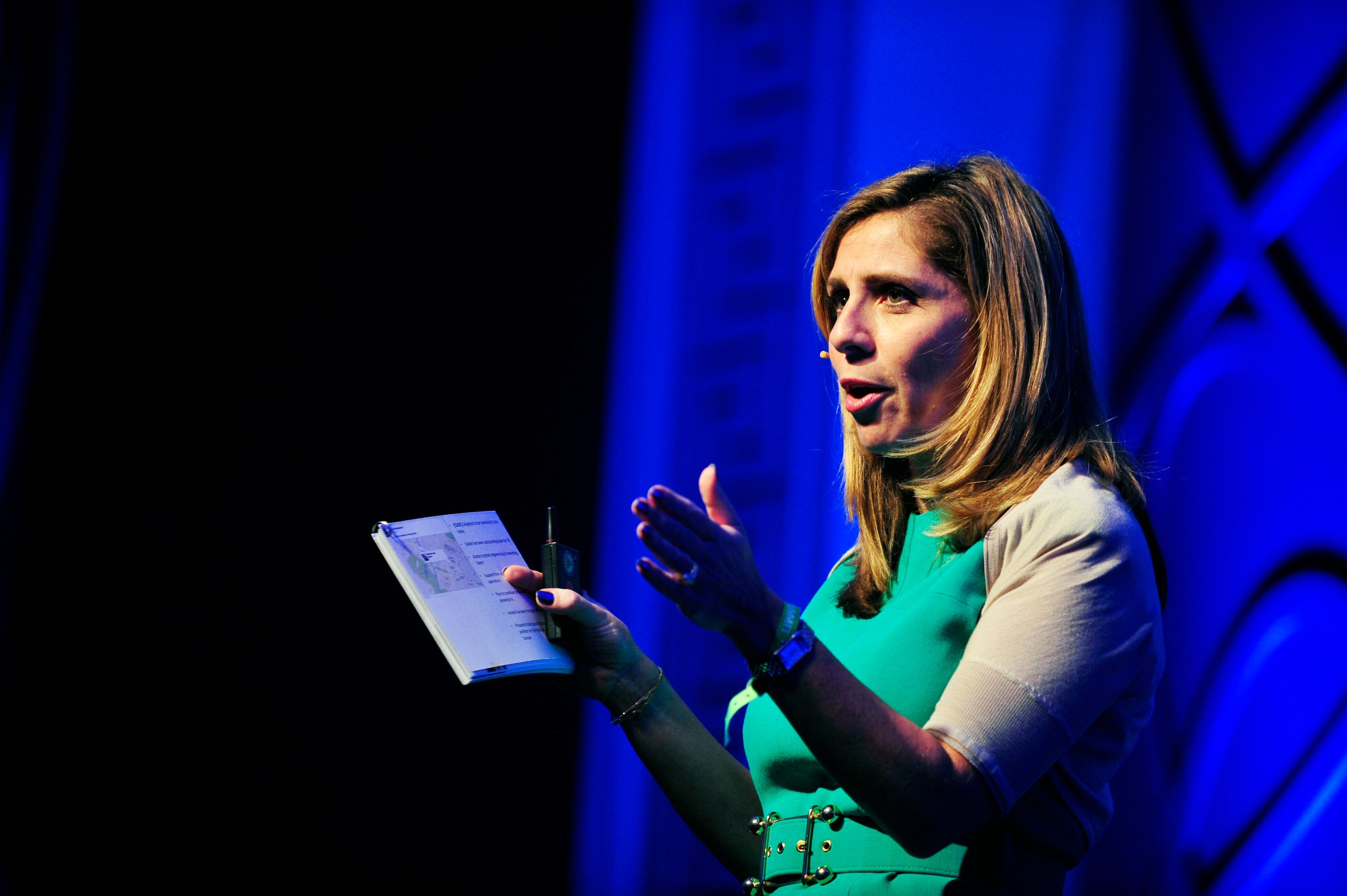
Like many of the U.S. tech giants, Facebook is increasingly betting its financial future overseas. The company, whose social network has already achieved widespread adoption in North America and Western Europe, is focusing more of its resources on fast-developing markets like Africa, the Middle East and India. In April Facebook announced that it had 100 million users in India, and it reached the same milestone in Africa in September.
The company is trying to get more people in these regions online through its Internet.org initiative, which aims to beam Internet connectivity to remote areas. At the same time Facebook is courting marketers by offering up region-specific advertising units that are tailored to the different ways people communicate around the world.
During New York’s Advertising Week, TIME sat down with Nicola Mendelsohn, Facebook’s Vice President for Europe, the Middle East and Africa, to discuss the growth of Facebook’s business abroad, how privacy concerns differ across cultures and whether Yo isn’t such a crazy app idea after all.
TIME: Obviously Facebook’s mobile transition has been a big story the past couple of years. But here when people think about it, they think of smartphones. Was Facebook’s feature phone business one that happened after smartphones or was it happening concurrently?
Mendelsohn: Two thirds of the world are accessing Facebook through feature phones, so it’s a hugely important part of how people access the platform. What we’re trying to do is make the world more open and connected so people can share more. Mobile means many different things depending on where on the planet you are and how you access Facebook and the Internet.
We’ve made a change in how we go to market in terms of our advertising products. It used to be that we had exactly the same advertising product all around the world. We’ve now started to place more and more resources in the developing markets, like Africa, like India, like Indonesia, to really understand how people are using Facebook, how they’re using mobile and come up with different products that work better there.
One is an insight borne out of what we saw in India. Data is expensive, and for a lot of people it can be prohibitive in terms of how they access Facebook or the Internet. What we saw was a whole “missed calls” phenomenon that was going on. Between us we’d create our own language—one missed call means go pick the kids up, two means let’s meet for a drink, three means I’ll meet you for lunch or whatever it is. We set up the missed call product so that advertisers could have the opportunity to tap into this meme and deliver information to people, some of whom are coming onto the Internet and to Facebook for the very first time and who are actually really excited to get messaging from advertisers. That’s the first place that we’ve done this, and the results are such that we’re going to look to do this in South Africa as well.
TIME: You just mentioned that a lot of people in these markets might be excited about seeing advertising because they haven’t been exposed to the Internet as much. Is the appetite for ads there higher than in America, where people are exposed to ads all the time?
Mendelsohn: People like advertising if it’s relevant and entertaining and useful to them. What we see in some of the high-growth markets is that brands are talking to them for the very first time, and there is an excitement about that because it’s new and it has not happened before. We see behaviors where people actually share the adverts that they see with other people because it’s of interest and it’s new information.
This Is What Your Facebook Profile Looked Like Over the Last 11 Years
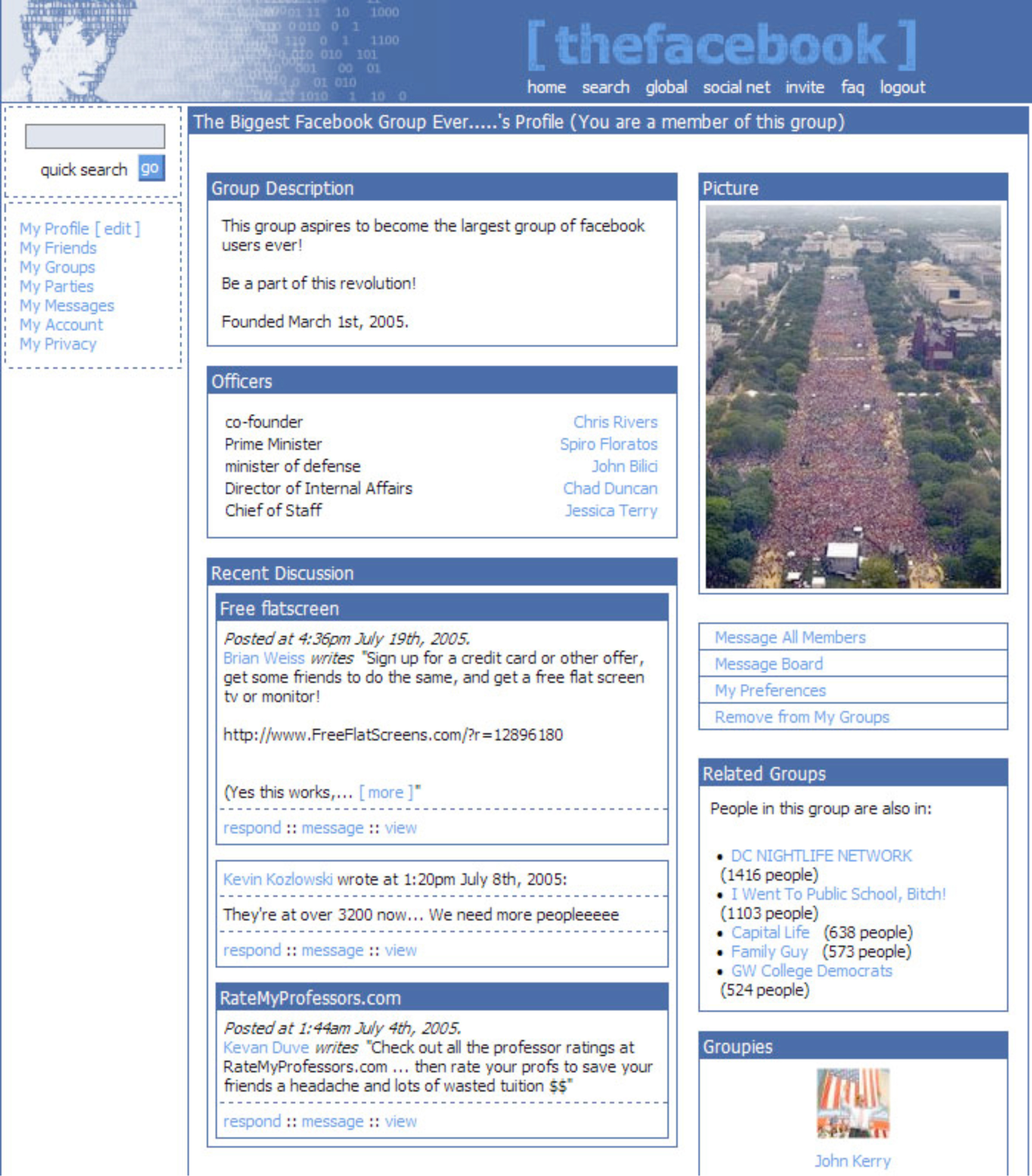
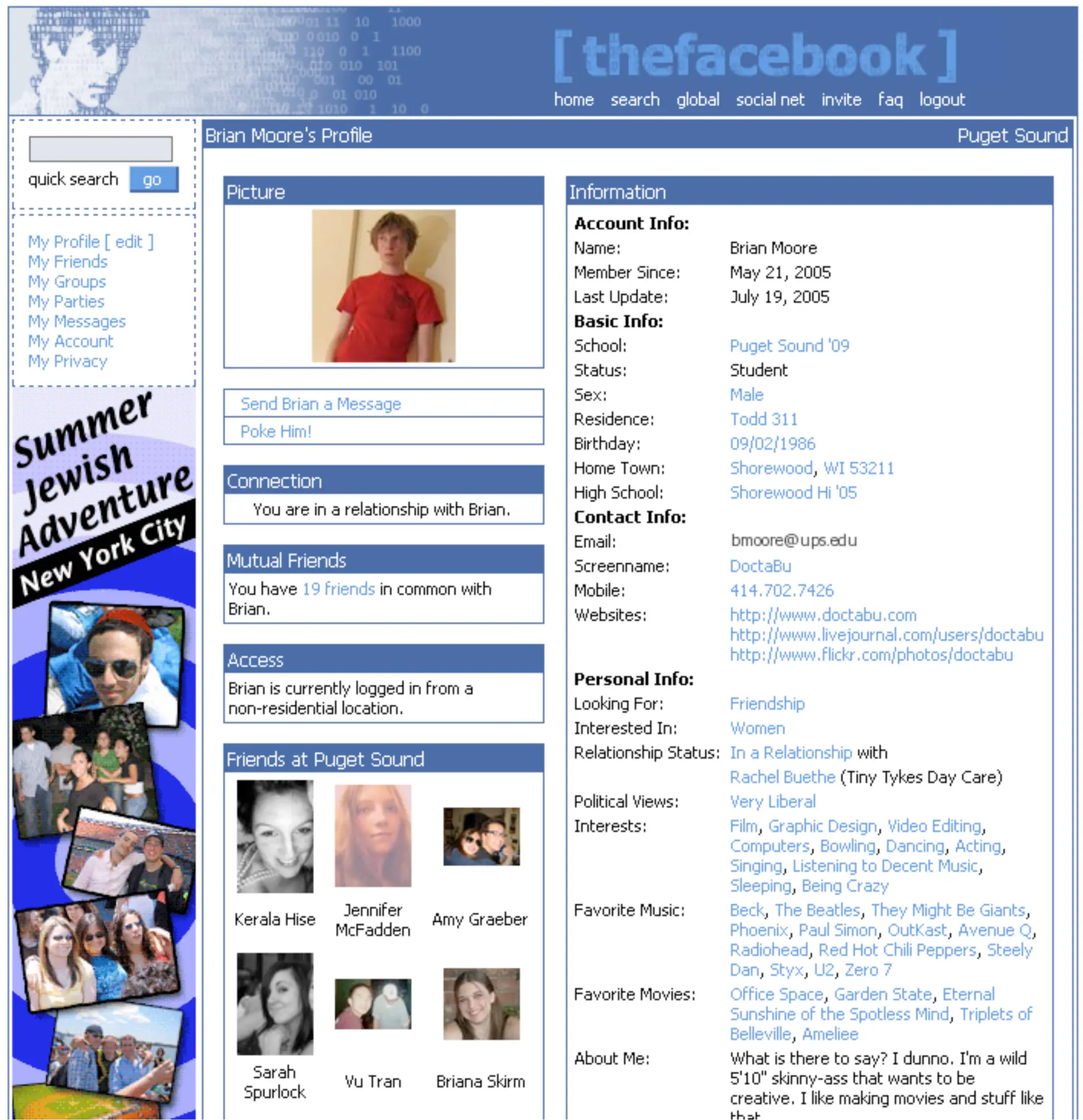
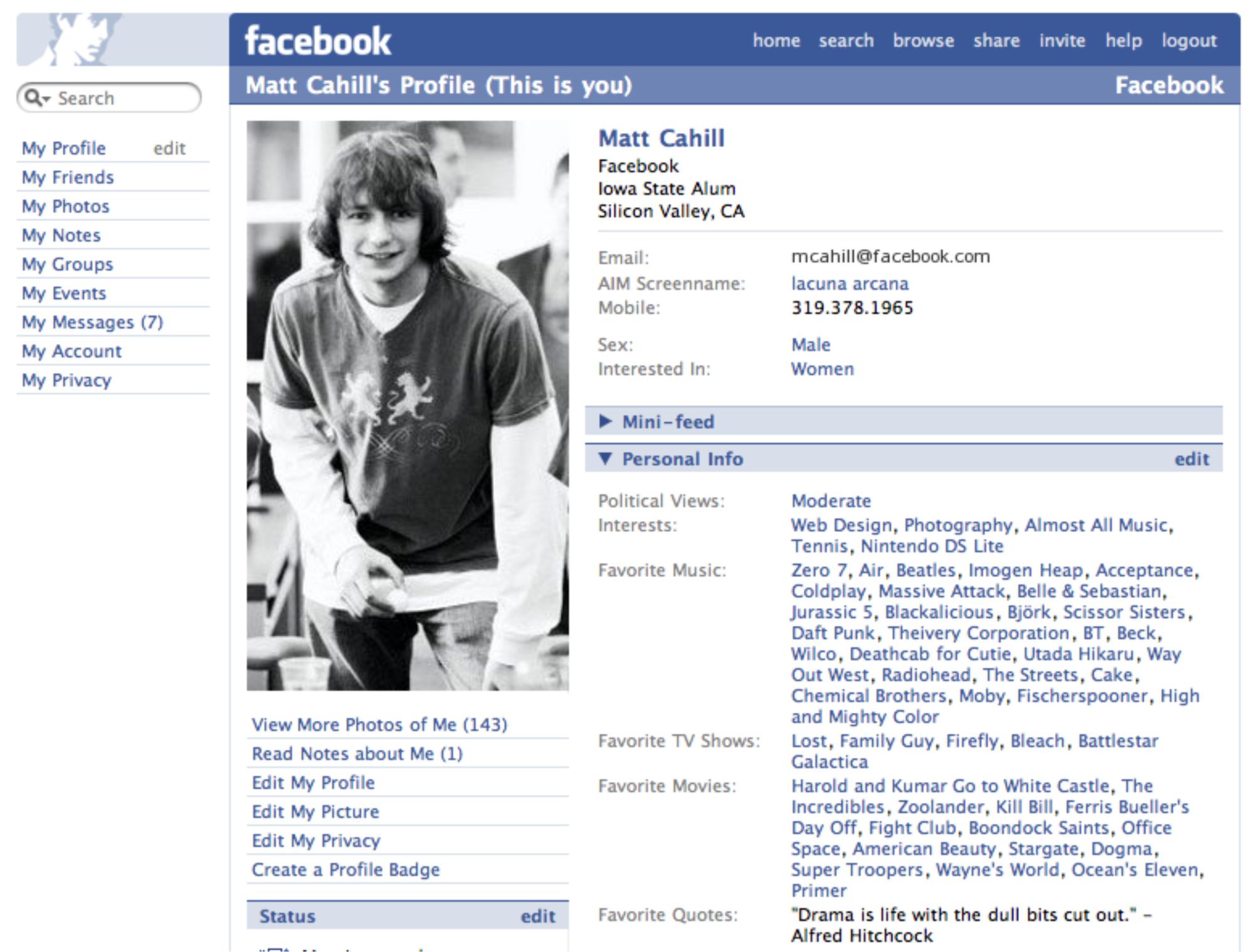
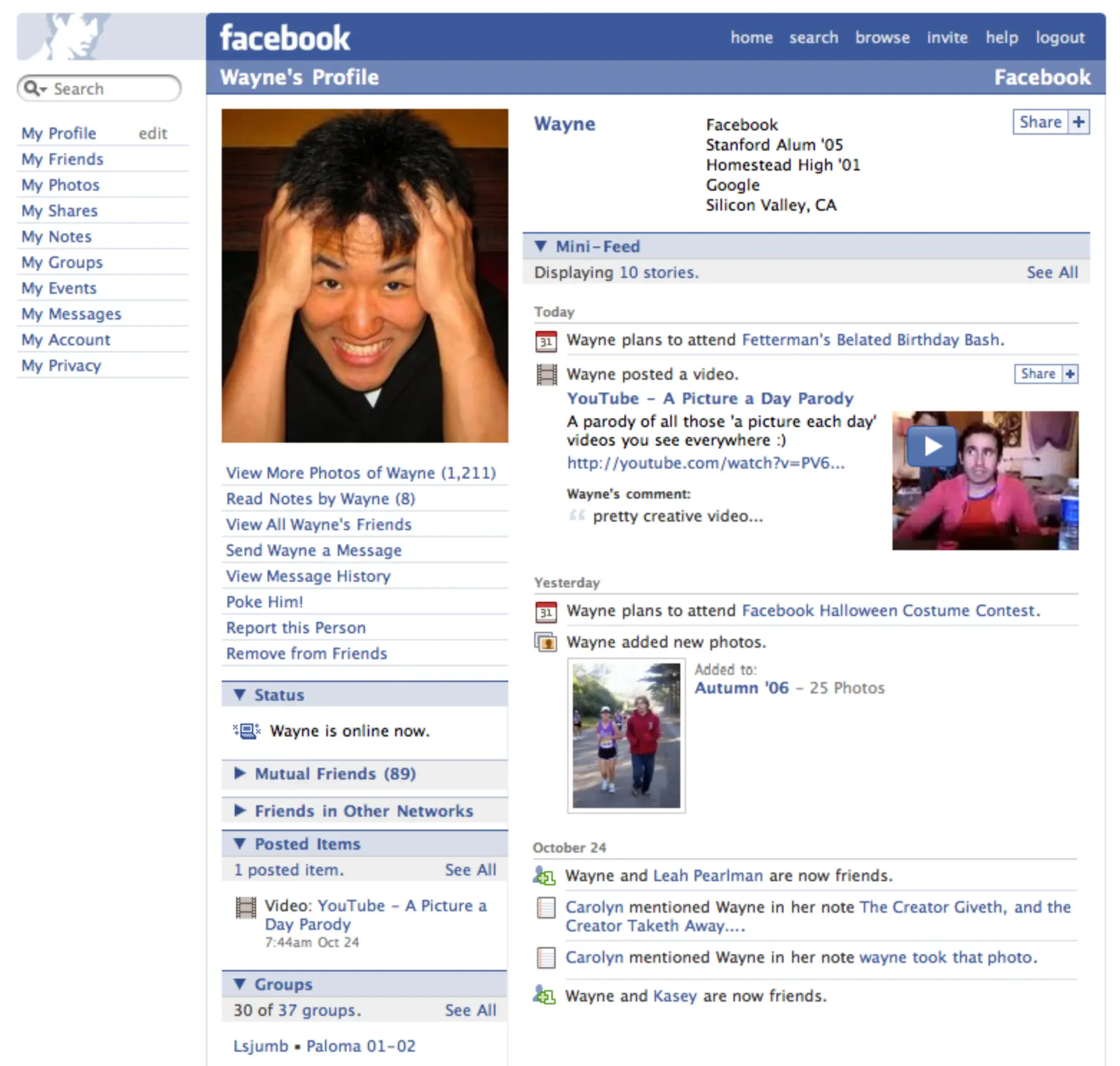
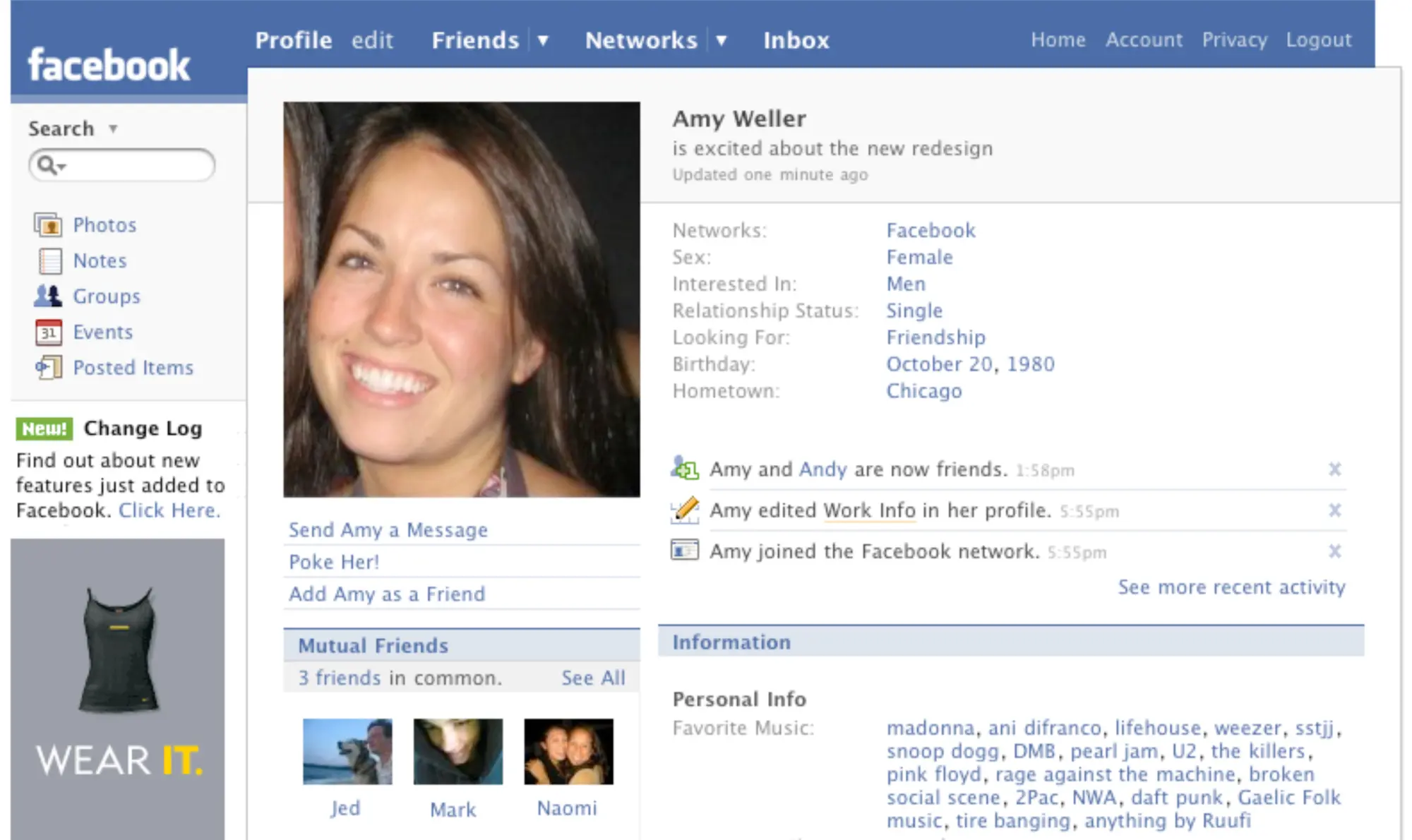
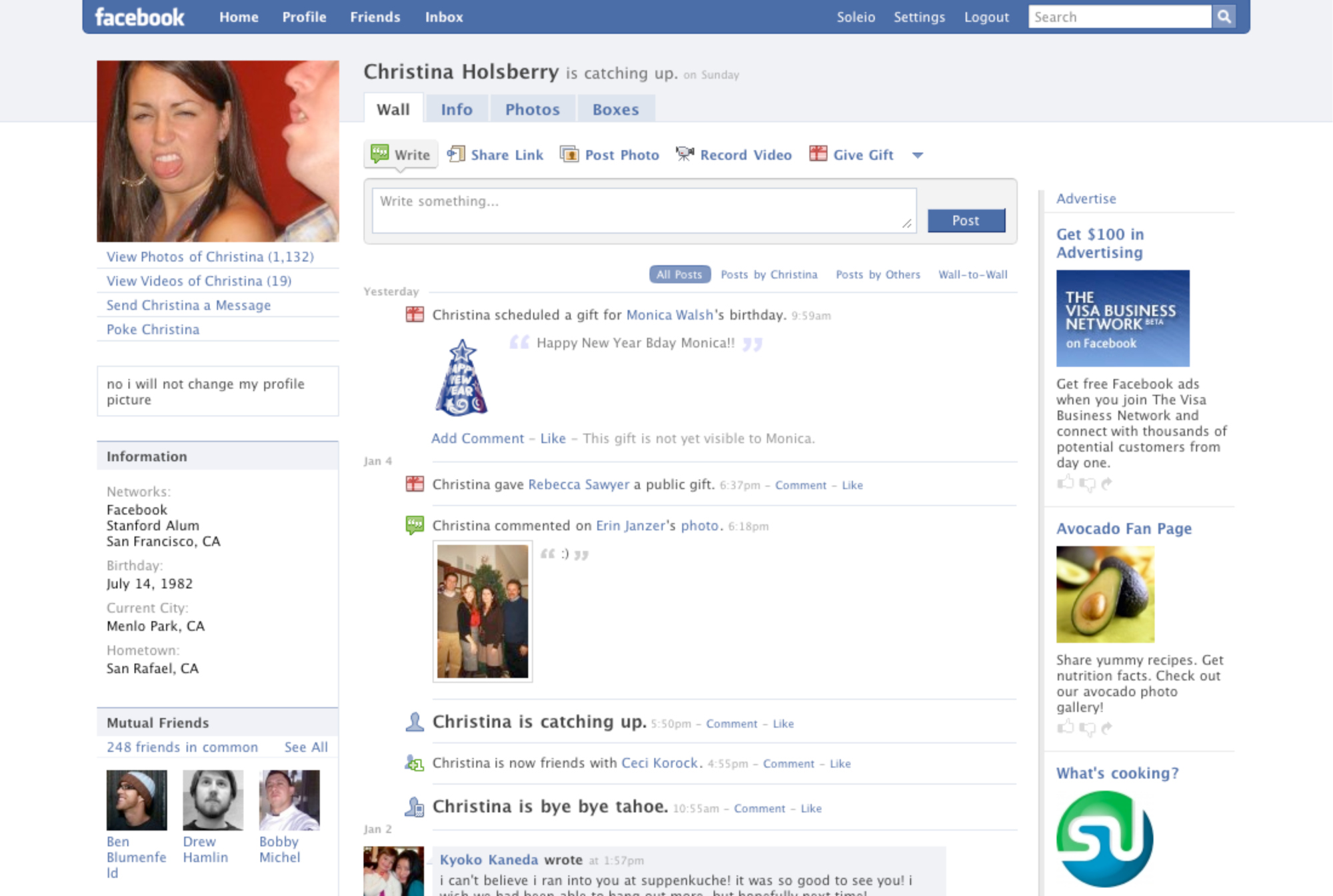
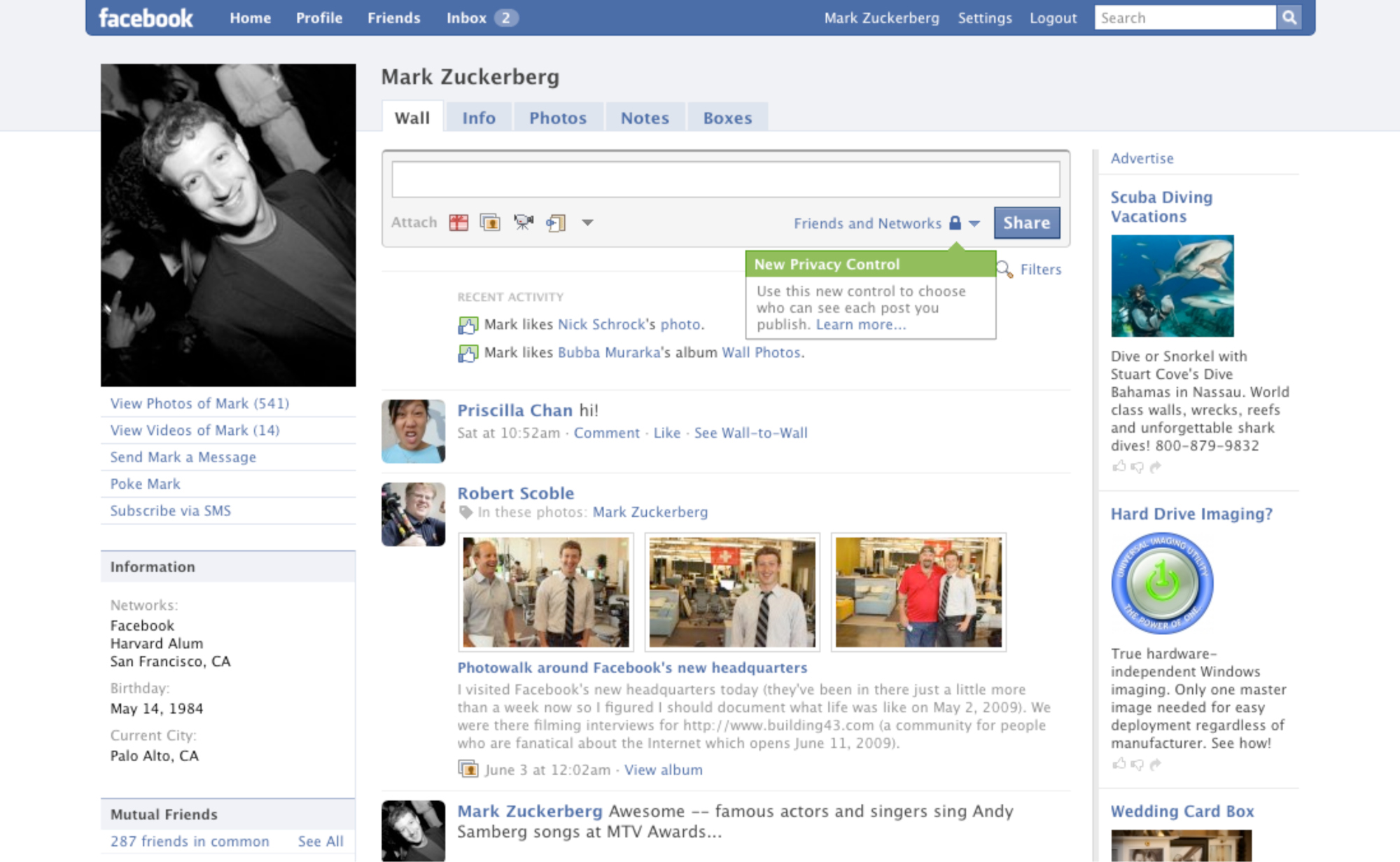
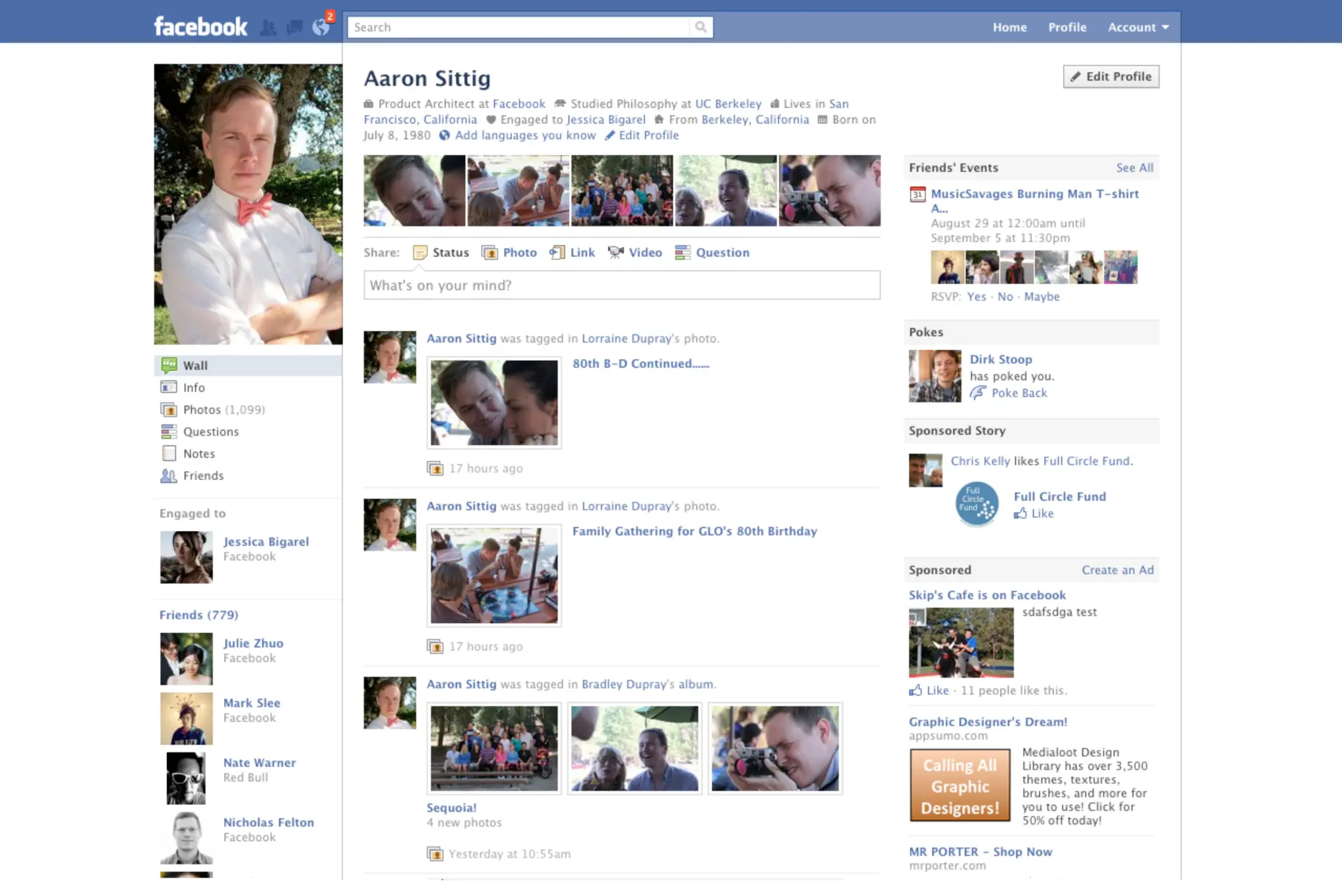
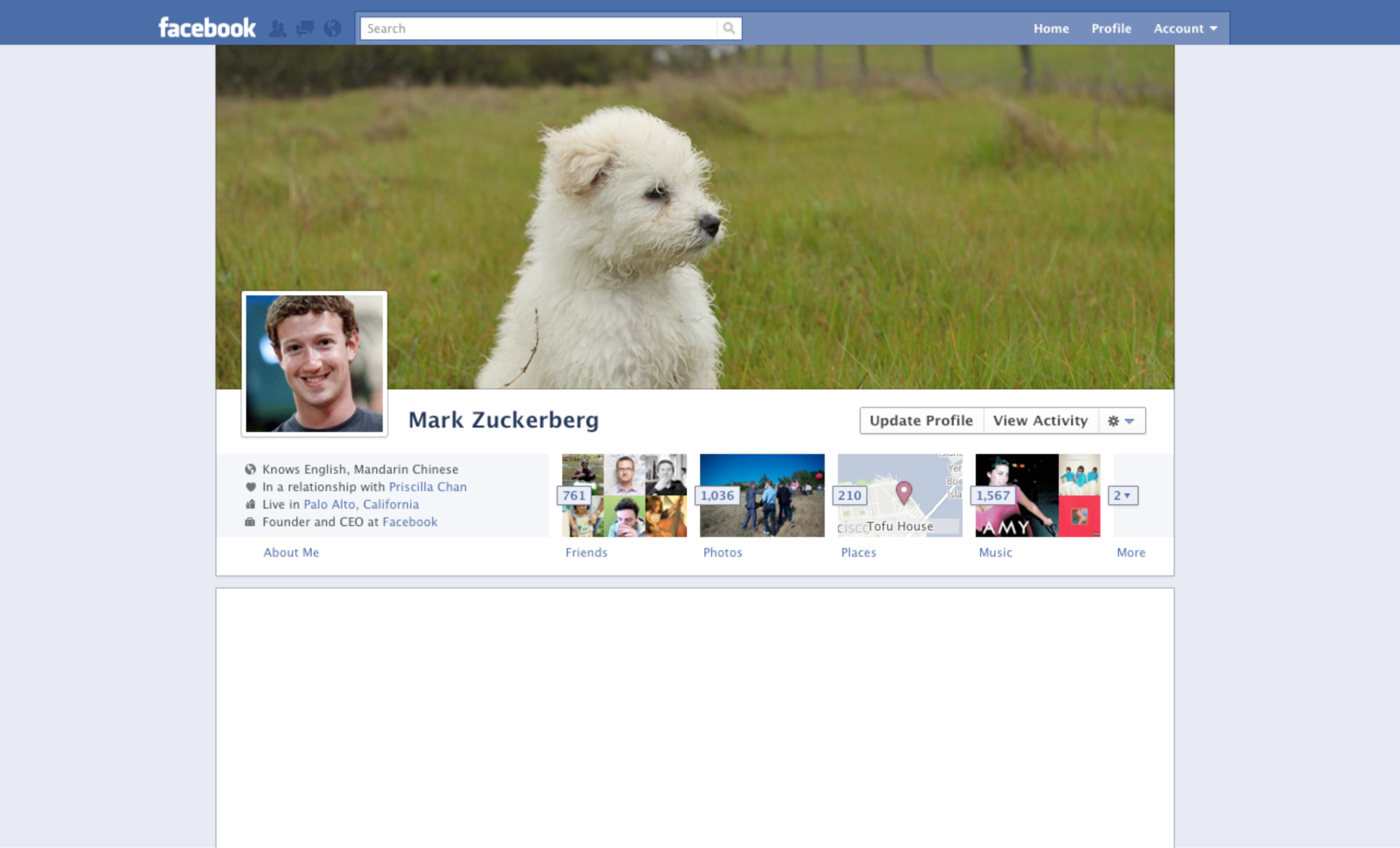
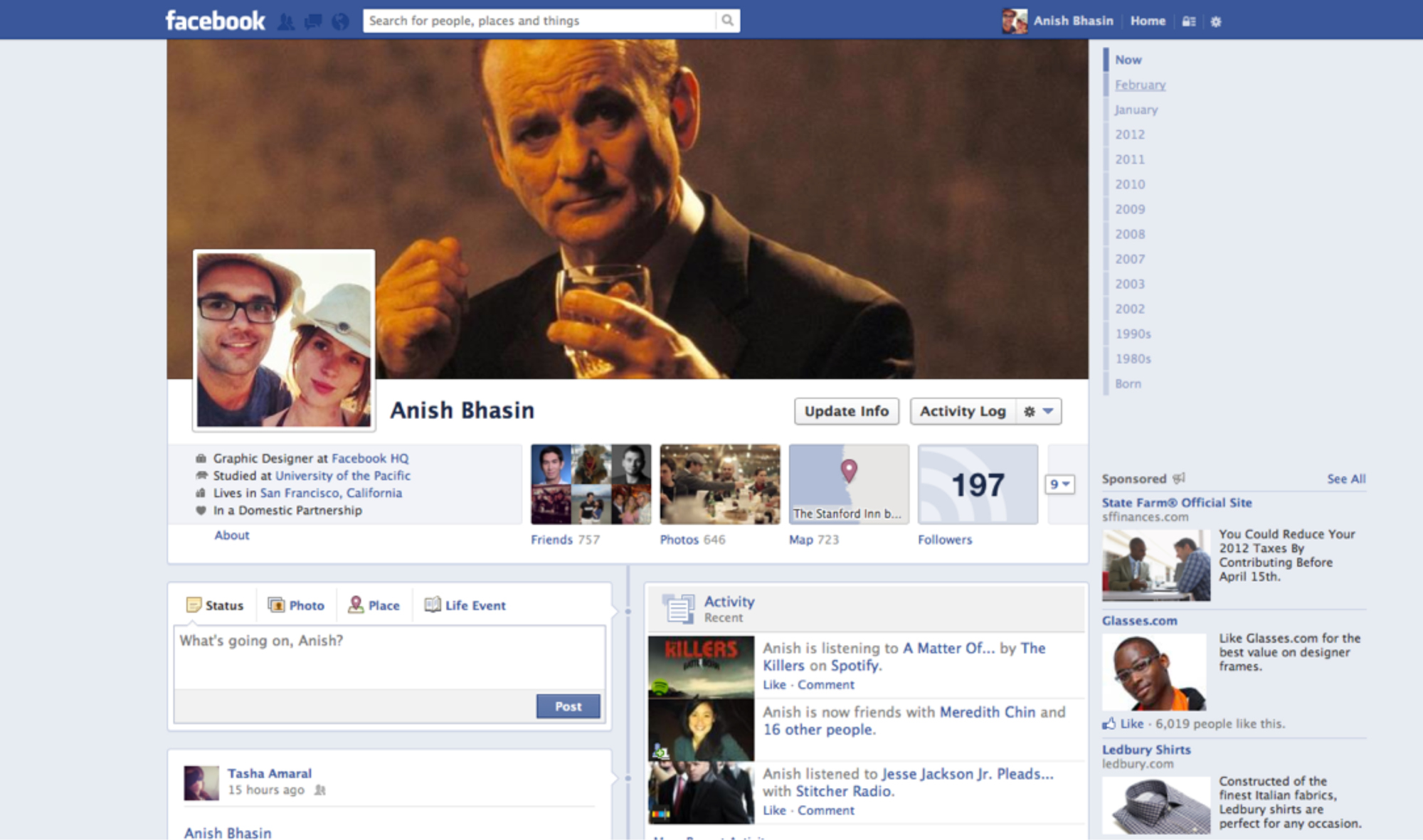
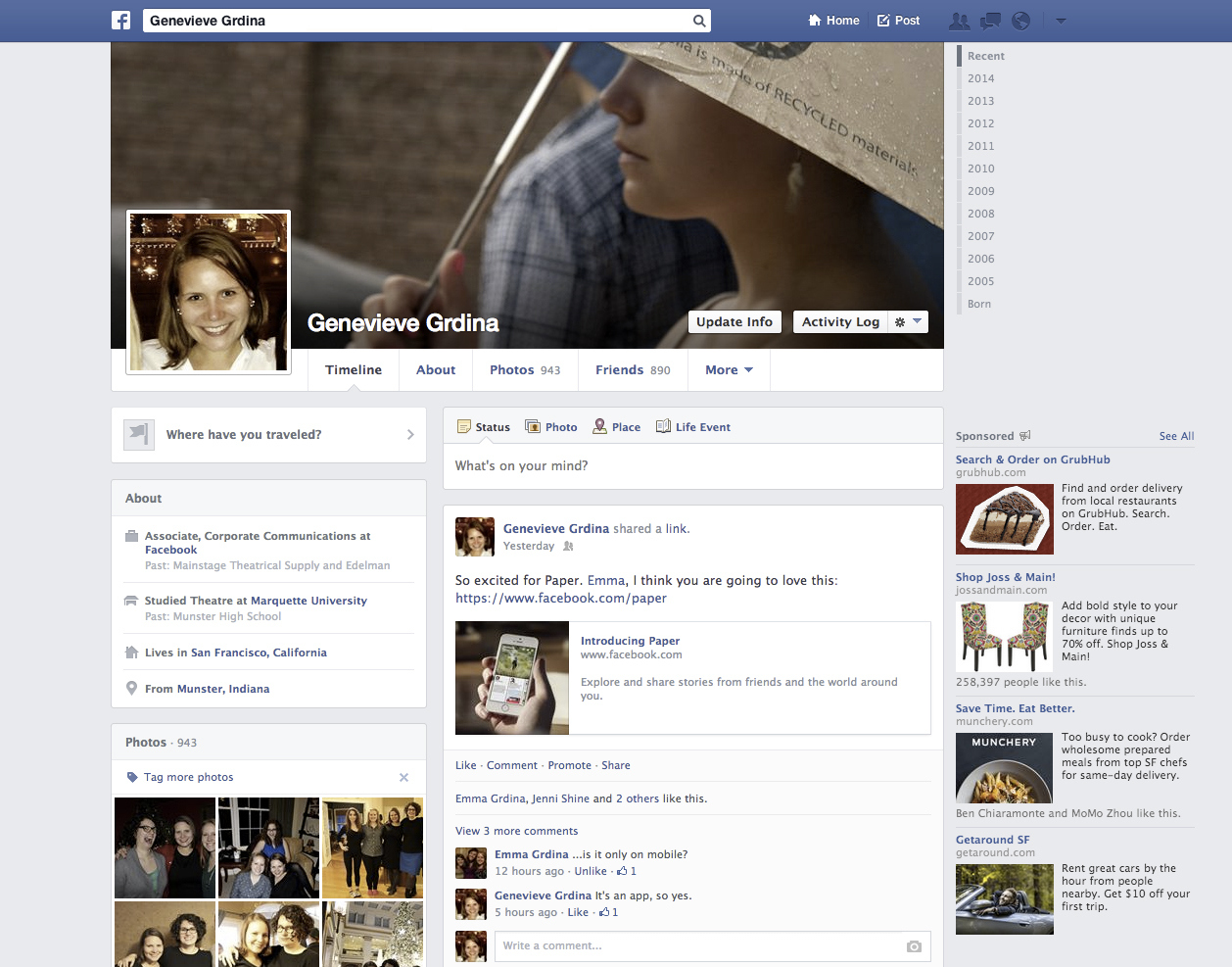
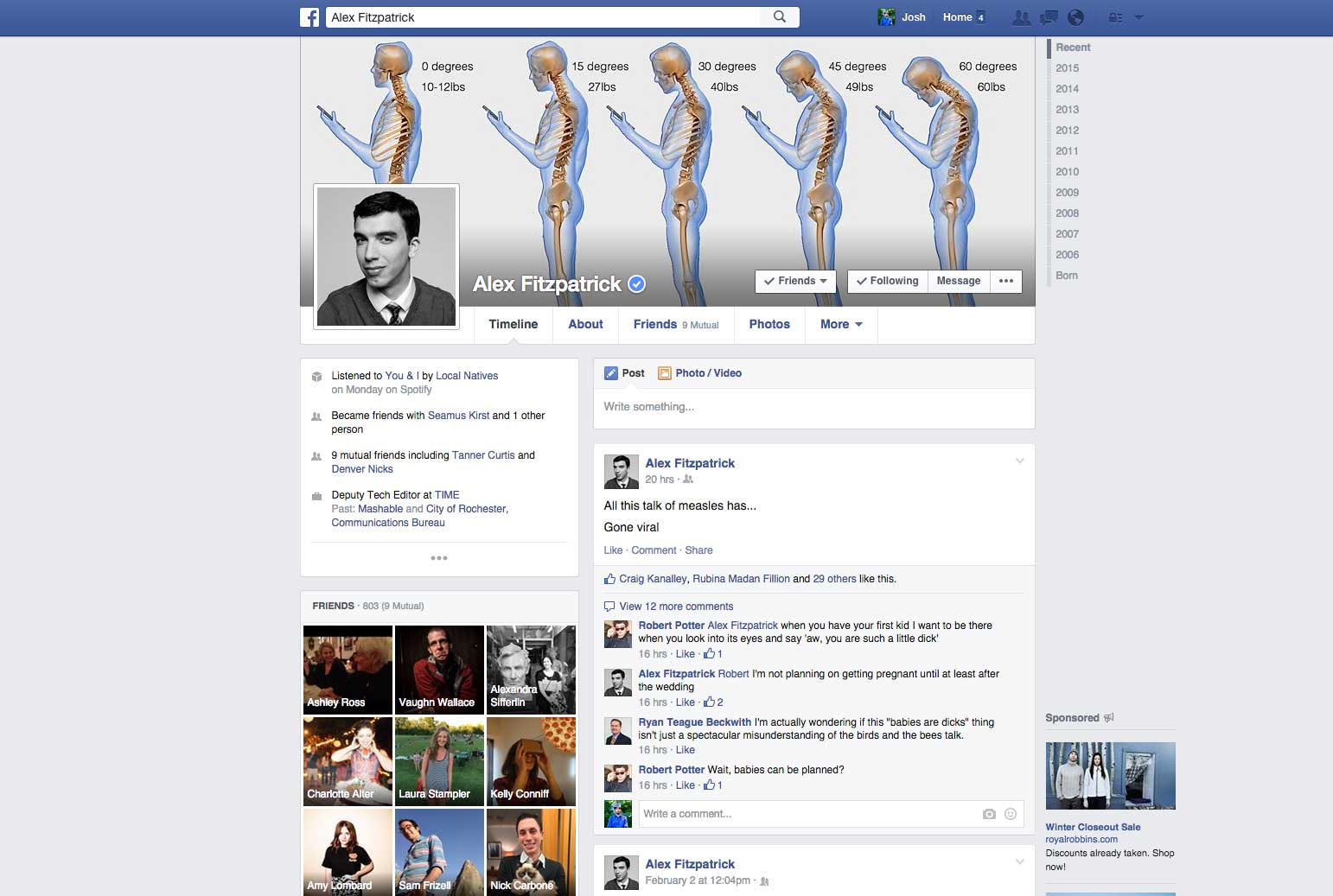
TIME: Out of that 100 million users in Africa, which are the countries you are most focused on?
A: That’s Nigeria, Kenya, South Africa.
TIME: Do you expect, going forward, that the feature phone market is going to increase, or do you see with Android One and these cheaper smartphones that people are going to transition to those devices really quickly?
I think there will be an acceleration of these cheaper smartphones, driven in particular by the price. But I think they’re not going to have all the same features that the ones we have in the U.S. and the U.K. have. There will still be challenges on things like data costs. Actually the challenge becomes greater when you have the smartphone because it has access to so many more bells, gadgets, widgets. If you want to connect the planet, data and cost is something that is prohibitive to that. It’s one of the reasons that Mark Zuckerberg launched Internet.org.
TIME: Facebook’s average revenue generated per user is much lower in these emerging markets than it is in the U.S. What is Facebook’s plan to boost that number in the future?
What is the primary concern in this part of the world is how we connect everyone to the Internet. That’s the primary focus. In terms of the ARPU, that will emerge in different ways.
TIME: You’re dealing with a lot of different types of cultures across a vast number of countries. Do you see different privacy concerns in different areas? How do you deal with that on an individual basis?
For us, privacy is the most important issue and making sure that people know and are in control of the data they share and who they share it with. I think that’s important for people wherever you are the world. One of the nuanced differences that we see in some of these countries is the fact that people like to be friends with lots more people than perhaps they might in mainland Europe. We see people want to have lots of friends, including people that they’ve never never before, and share information with those people. That is a difference that might sit uncomfortably with other people in different parts of the world.
TIME: Are you familiar with the app Yo?
No, I’m not. Tell me about Yo.
TIME: All it does is send the word Yo to other people. It was actually pretty heavily mocked when it came out over the summer. But it sounds like from what you’re saying that’s a logical use case that actually exists, where people would want to send a single word that can provide context about what they’re doing.
I can’t talk to [Yo], but I think people communicate in different ways. The uptake in stickers—people sending emoticons just to express their feelings—is a different way of showing how people communicate. Not necessarily in Africa but in some of the more developed markets. People are becoming much more visual.
We’ve always seen with any new technology that’s come on since the printing press, that it causes people to think about how they communicate in different ways. One of the things that’s been surprising about this technology revolution is that it’s shortened some of the ways that we communicate with each other rather than increasing it. If the printing press meant that we could write canon of books, the mobile phone means I can write “LOL” and we both understand what that means.
More Must-Reads from TIME
- Why Biden Dropped Out
- Ukraine’s Plan to Survive Trump
- The Rise of a New Kind of Parenting Guru
- The Chaos and Commotion of the RNC in Photos
- Why We All Have a Stake in Twisters’ Success
- 8 Eating Habits That Actually Improve Your Sleep
- Welcome to the Noah Lyles Olympics
- Get Our Paris Olympics Newsletter in Your Inbox
Contact us at letters@time.com